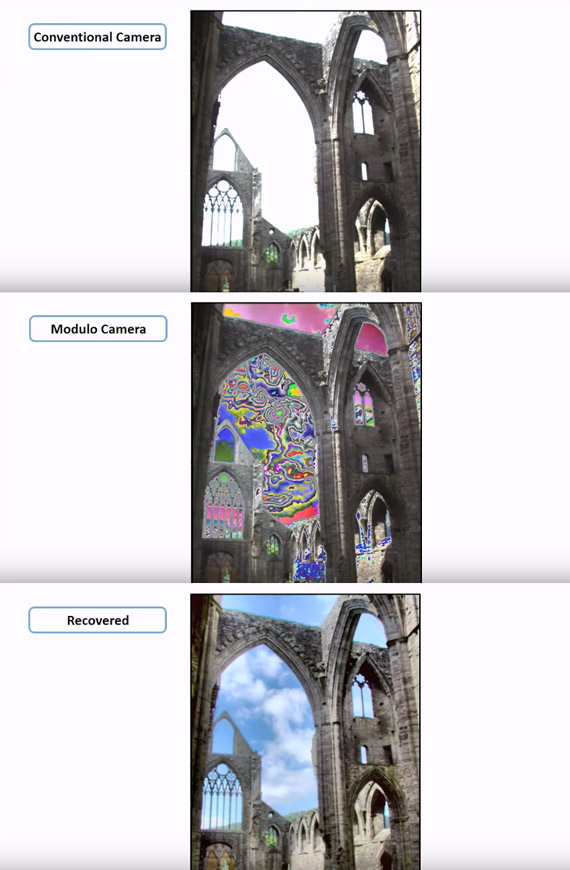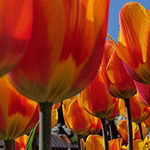It’s happened to the best of us—after a day of shooting, you download your photos only to find that some of them have that tell-tale, washed-out look. They’re overexposed. Certain lighting conditions can make it difficult to produce a well-exposed photo, but researchers at the Massachusetts Institute of Technology (MIT), along with Media Lab’s Camera Culture group and the Singapore University of Technology and Design, have created what they’re calling a modulo camera, which comes equipped with “unbounded high dynamic range” technology that makes it impossible to overexpose an image:

Unlike traditional high dynamic range (or HDR) techniques, the modulo camera only requires one shot rather than multiple images. It uses an algorithm to reset the camera’s sensor, preventing it from getting saturated with light, which results in an overexposed image.
This technology has the potential to change the way photography has worked for centuries—no more experimenting with aperture and shutter speed to find the optimal exposure settings; just let the algorithm figure it out for you. Who knows—in a few years, we may be seeing this technology available in consumer cameras.
For more of the technical details, check out this article from the MIT Media Lab.
Like This Article?
Don't Miss The Next One!
Join over 100,000 photographers of all experience levels who receive our free photography tips and articles to stay current:







This is pretty cool. It’ll be a while before it trickles down to us, but I love technology.
I have had my new D750 for less than a week, but the “fourth” exposure setting, called Highlight Weighted Metering has been magical for me. I live and shoot in Florida, where even the early morning and evening sun can result in massive dynamic range requirements. The D750’s sensor’s dynamic range along with the Highlight Weighted Metering, meant for shooting subjects such as a single person against a dark background in strong stage lighting, for example, creates landscape photos that I would have formerly only gotten with a set of images combined in a realistic HDR.